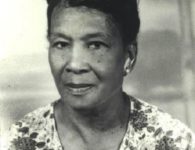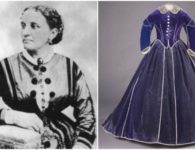Photo credits: Bettmann Archive/Getty Images
After a court denied a petition to dismiss the case on May 2, a lawsuit seeking compensation for elderly survivors of the 1921 Tulsa Race Massacre is going ahead.
The three live survivors of the racial rampage, all of whom are over 100 years old, were in the courtroom as Tulsa County District Court Judge Caroline Wall revealed her decision, according to the Associated Press.
“In their lives, we want them to see justice. In my 20 years of working on this topic, I’ve seen a lot of survivors die. I just do not want to watch the remaining three die in vain. That’s why time is important,” said attorney Damario Solomon-Simmons.
Simmons originally filed the lawsuit in 2020.
On May 31, 1921, hordes of angry whites were on a rampage in the all-Black Greenwood District, which was home to the bustling commercial sector known as Black Wall Street. They set fire to houses and businesses and killed an estimated 300 Black inhabitants. They injured 800 and displaced over 10,000 people.
Lessie Benningfield Randle, 107, Viola Fletcher, 107, and Hughes Van Ellis, 101, are the only remaining survivors.
Under the state’s public nuisance legislation, the case seeks restitution for victims’ descendants. According to ABC News, the legislation empowers residents of Greenwood to sue police for endangering them and their property.
In the complaint, attorneys for the victims claim that racial and economic imbalances resulting from the destruction of companies and property still exist a century later. It accuses municipal and county authorities of obstructing Greenwood’s attempts to rebuild after the killing while promoting Tulsa’s white areas.
In addition to punitive penalties, the complaint asks for the establishment of a Tulsa Massacre Victims Compensation Fund, as well as mental health and education initiatives for the victims.
The mayor’s administration refused to comment on the judge’s decision when ABC asked for it.
Also, the Tulsa County Board of County Commissioners and the Tulsa County Sheriff are among the defendants, claiming that too much time has passed and that the massacre had no long-term consequences.
“What occurred in 1921 was a truly lousy deal, and those people didn’t receive a fair shake,” Chamber of Commerce attorney John Tucker told the Associated Press.




















No comments